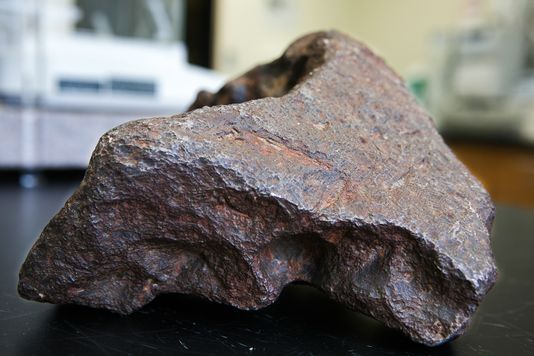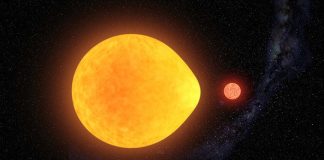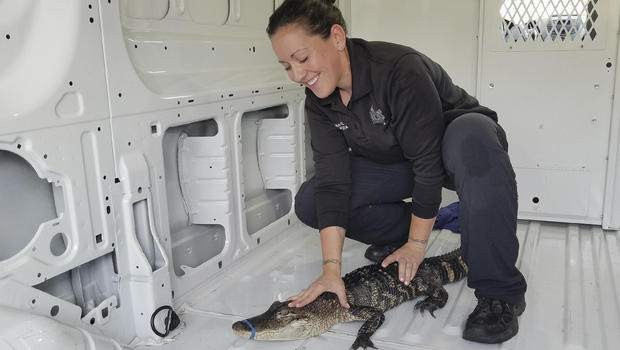
A meteorite worth about $100K has been used as a doorstop at a Grand Rapids farm for years.
Geology Professor Mona Sirbescu of Central Michigan University first identified the 22.5-pound chunk of iron as more than just a doorstop when the owner asked her to look at it earlier this year. Although many people had asked her to examine rocks in the past, this time was different.
CMU prof catches a falling star
“I was exhilarated,” Sirbescu said.
Meteorites are broken-off pieces of asteroids that come from outer space and enter the earth’s atmosphere.
To test her suspicions, Sirbescu immediately began examining the properties of the iron, such as its magnetism, weight and composition. She sent two small slices to the Smithsonian in Washington, D.C., to validate her findings. A colleague there further analyzed the sample, including with an acid test to reveal the Widmanstätten pattern, a property of most iron-nickel meteorites that cannot be faked.
On Jan. 17, Michigan experienced a meteor flash that shook the state and left small rocks scattered in Livingston County as it blew apart entering the atmosphere.
But this chunk was from a much older asteroid: When the Grand Rapids man bought his farm in the Edmore area in 1988, the previous owner told him that the doorstop was a meteorite from the 1930s.
“The story goes that it was collected immediately after they witnessed the big boom and the actual meteorite was dug out from a crater,” Sirbescu said, but added that the tale has been passed down without eyewitness confirmations.
The meteorite is the sixth-largest found in Michigan.
Next steps, Sirbescu said, include using a nuclear reactor to help determine from which asteroid it originates.
As for naming the asteroid: both Sirbescu and the Smithsonian agree that “Edmore” fits the bill.













